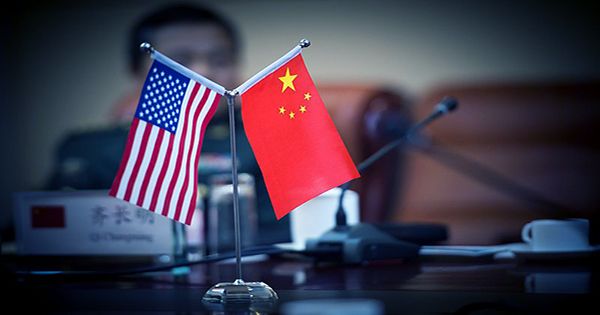In the race for control over crucial 21st-century technologies, China is poised to overcome the United States. The United States may have already lost the race in some of these areas. Four top academics from Harvard Kennedy Institution, the university’s public policy school, come to this conclusion in recent research titled “The Great Tech Rivalry: China vs. the US.”
The authors compared the US versus China in a variety of key technologies that will define the twenty-first century, including artificial intelligence (AI), 5G, quantum information science (QIS), semiconductors, biotechnology, and green energy.
China has already gained domination in several races, such as 5G and quantum information science, according to the research. In other disciplines, current trends indicate that it will surpass the United States over the next ten years. The article begins by referencing a 1999 forecast made by the National Academies of Science, Engineering, and Medicine in the United States.
According to the Academy, the world is on the verge of an unparalleled technological boom that will soon convert science fiction into reality. Given that the United States was the dominant engine of technology in the second part of the twentieth century, it was well-positioned to sustain dominance in the twenty-first.

China looks to have been vastly misjudged. According to the research, a 1992 Time Magazine article on the future century arrogantly stated: “China cannot evolve into an industrial superpower in the twenty-first century.” It has an excessively big population and a low gross domestic output.”
However, by 2010, it was clear that China was much more than a low-cost manufacturing powerhouse. Multinational corporations sprang up all throughout China under the direction of the Chinese state, causing considerable rivalry in the foundational technologies of the twenty-first century.
“Wherever the Chinese governments have the ability to safeguard enterprises in their home market, encourage national champions through subsidies and access to government data, and empower corporations to lead, it does so.” As a result, the research predicts that China’s digital environment would be on par with Silicon Valley by 2025 “in terms of vitality, creativity, and competitiveness.”
China’s ascension to superpower status in the twenty-first century is nothing new. A former Pentagon software chief warned in October 2021 that China is paving a path to world supremacy because of its concentration on technical growth, particularly in the realm of AI.
In 2018, China overtook the United States as the world’s largest publisher of scientific publications, marking a significant milestone. The United States must now consider how it will navigate a world in which it is no longer the single superpower. While the current study may criticize for being alarmist, it ends on a positive note, suggesting that the United States is not yet “game over.”
“Knowing the enormity of the challenge posed by what Singapore’s founding leader Lee Kuan Yew prophesied would be “the largest actor in the history of the world” is the first step toward developing an effective and long-term China strategy. In an accompanying article, Graham Allison, the report’s principal author, stated, “We believe it should—and will—prompt the United States to mobilize a response equal to the challenge.”















